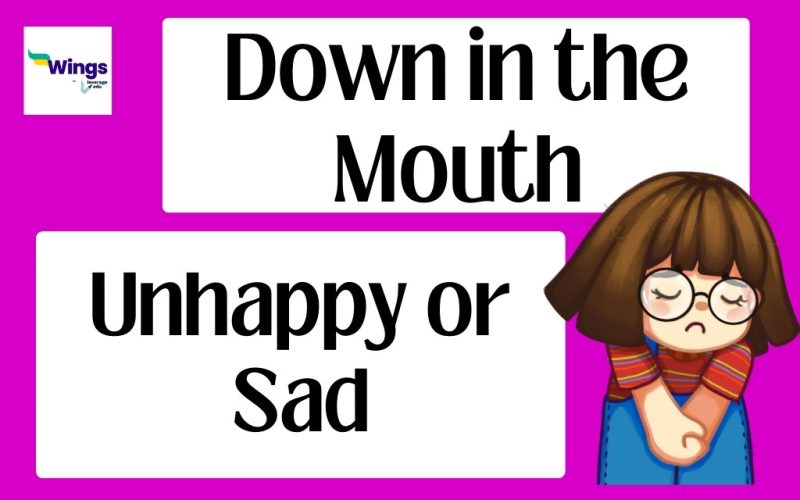The meaning of the idiom “down in the mouth” is to feel sad, dejected or depressed. If someone is unhappy, then, this idiomatic expression could perfectly fit in to describe their emotional state. It signifies the law-spirit of the person after he/she faces any setback or failure in any task. This idiom can be used in various instances of life to display the miserable mood of an individual.
Also read: To Eat A Humble Pie Meaning, Examples, and Synonyms
Usage with Examples
This idiomatic expression could be used in normal conversation with friends and in corporate or academic circles. It is an expression which basically defines the mood of a person in a particular instance. If an individual has encountered a failure in any competition or task then, it is obvious that he would be unhappy about his loss. Then at that time we could use this idiomatic expression.
You can get more clear idea of using this idiom from the following examples:
- Despite the party environment, Rhea seemed down in the mouth as she was about to leave the organization.
- Jane was feeling down in the mouth ever since he heard the news of her grandfather’s demise.
- Selena felt down in the mouth after getting a rejection from her dream university.
Also read: Useful idioms with Examples, Sentences and Meaning
Synonyms and Similar Words to “Down in the Mouth”
Mentioned below is the list of synonyms and similar words to this idiom:
- Sad
- Depressed
- Unhappy
- Low-spirited
- Sullen
- Discouraged
- Dejected
- Gloomy
- Melancholic
- Miserable
- Heavy-hearted
Down in the Mouth Meaning Quiz
Complete the below sentence using appropriate idiom:
After losing the final football match in inter school competition, Sam was ______________.
- Over the moon
- On cloud nine
- Down in the mouth
- Dejected
Ans. c. down in the mouth.
This was all about the idiom ‘down in the mouth’ meaning and examples. Hope you understood the concept where it’s used. For more such blogs, follow Leverage Edu.


 One app for all your study abroad needs
One app for all your study abroad needs












 60,000+ students trusted us with their dreams. Take the first step today!
60,000+ students trusted us with their dreams. Take the first step today!